The Impact of Electronic Visa on Global Mobility and Travel
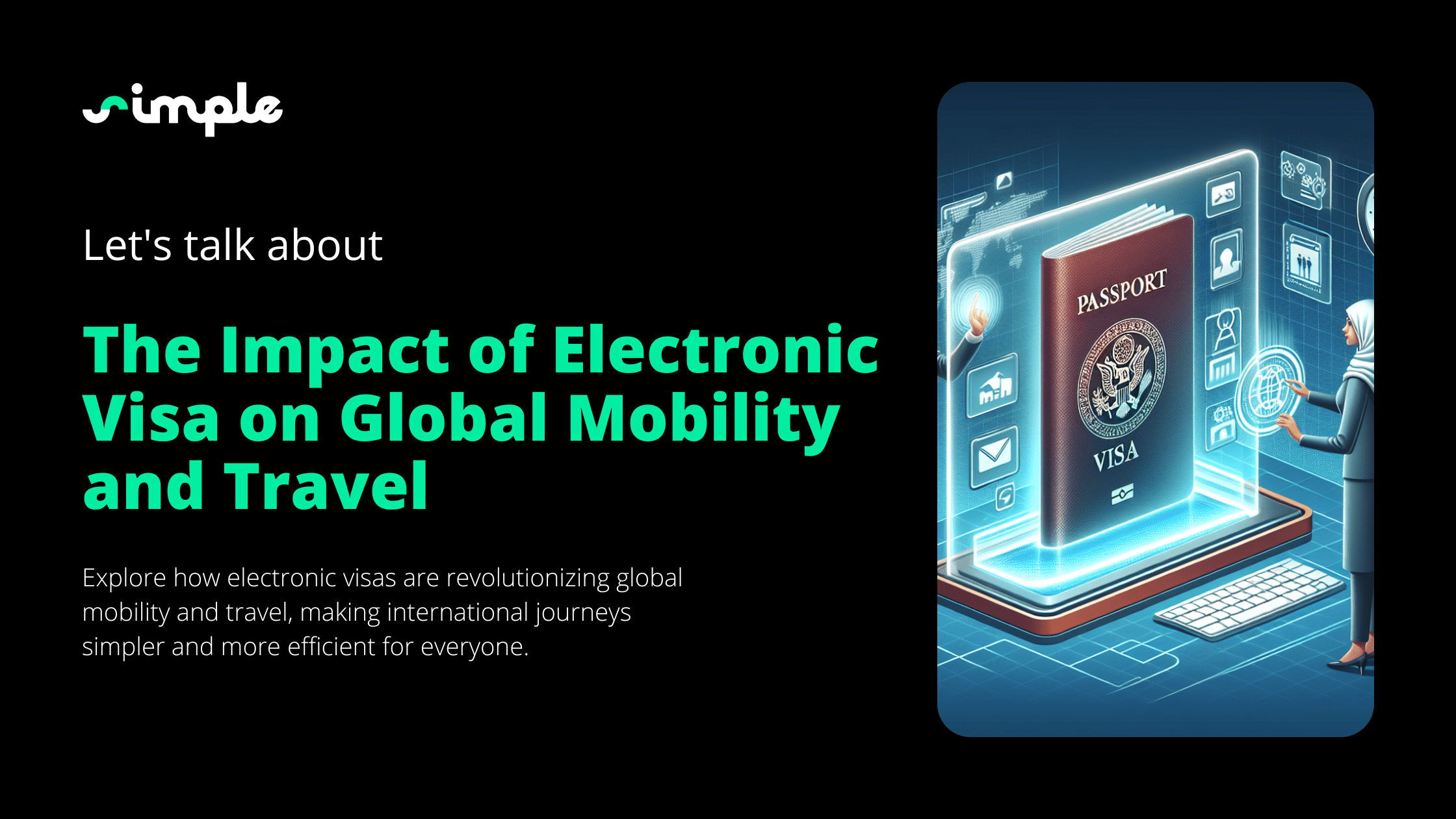
Visa systems have undergone significant transformations over the years, evolving from cumbersome paper-based processes to streamlined digital solutions. Among these advancements, electronic visas (e-Visas) have emerged as a pivotal innovation, revolutionizing the way travelers obtain permission to enter foreign countries. An electronic visa is a digital travel authorization that allows individuals to apply for and receive their visas online, eliminating the need for physical visits to embassies or consulates.
The significance of e-Visas cannot be overstated. They offer a level of convenience and efficiency previously unattainable with traditional visa systems. As global mobility and travel continue to expand, the adoption of e-Visas is becoming increasingly prevalent. This trend is driven by the growing demand for faster, more accessible, and secure methods of obtaining travel permits. The rise of digital travel authorization systems is not only transforming the travel industry but also enhancing the overall experience for millions of travelers worldwide.
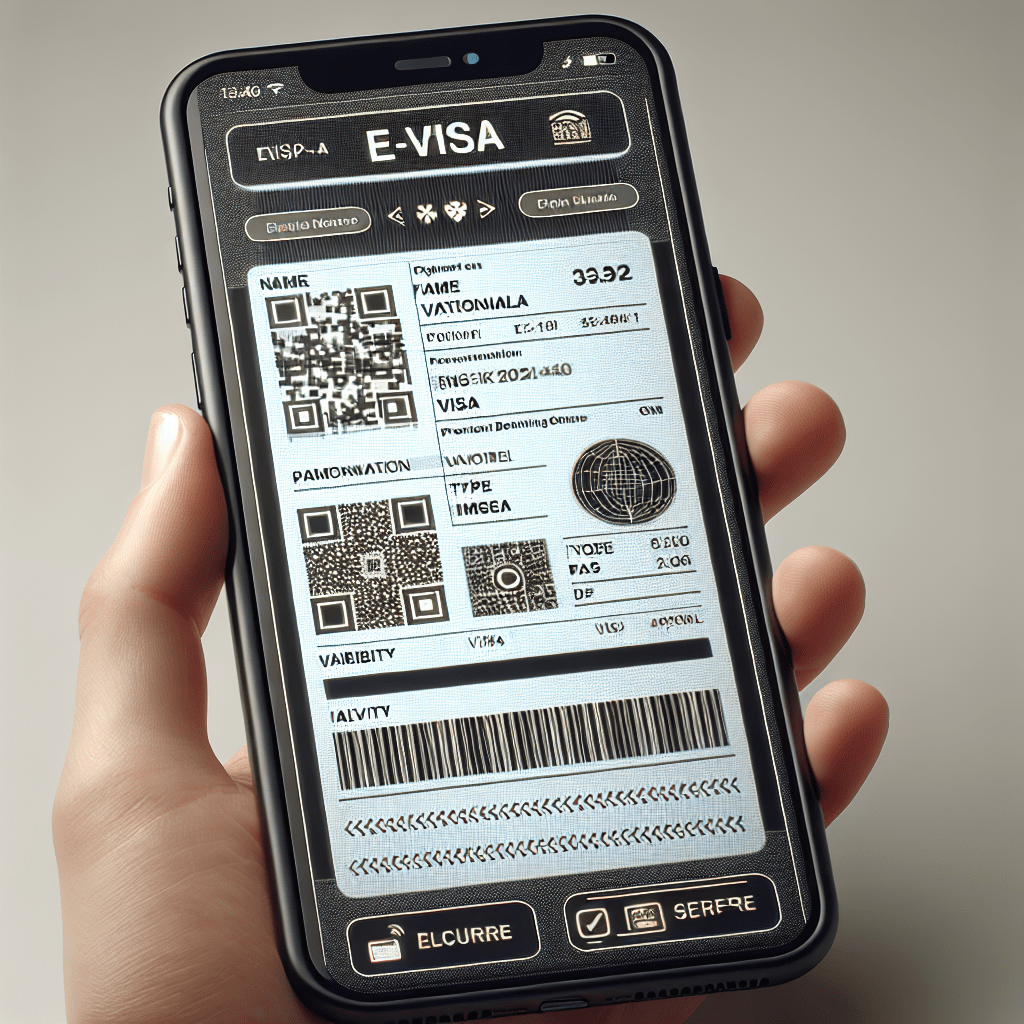
Advantages of Electronic Visas
Convenience and Accessibility
One of the most significant advantages of electronic visas is the unparalleled convenience and accessibility they offer. The online visa application process allows travelers to apply for their visas from the comfort of their homes, using a computer or mobile device. This digital travel authorization system eliminates the need for physical visits to embassies or consulates, which can be time-consuming and often require scheduling appointments well in advance.
The ease of access provided by e-Visas is particularly beneficial for individuals living in remote areas or those with limited mobility. By leveraging a web-based visa system, applicants can complete their applications at any time, without the constraints of office hours or geographical limitations. This level of accessibility is a game-changer, making international travel more attainable for a broader audience.
Moreover, the online immigration form is designed to be user-friendly, guiding applicants through each step of the process. This reduces the likelihood of errors and ensures that all necessary information is provided, streamlining the overall application experience. The availability of virtual visa services also means that applicants can receive assistance and support throughout the process, further enhancing the convenience of obtaining an electronic travel permit.
Speed and Efficiency
Another key advantage of e-Visas is the speed and efficiency with which they are processed. Traditional visa applications often involve lengthy waiting periods, with processing times varying significantly depending on the country and type of visa. In contrast, e-Visa processing is typically much faster, with many applications being approved within a matter of days or even hours.
The digital nature of e-Visas allows for immediate confirmation and updates, providing applicants with real-time information about the status of their applications. This level of transparency is a significant improvement over traditional systems, where applicants may be left in the dark for weeks or months. The ability to track the progress of an application online also reduces anxiety and uncertainty, making the entire process more user-friendly.
Furthermore, the efficiency of digital visa approval is enhanced by automated systems that can quickly verify the information provided by applicants. This reduces the administrative burden on consular staff and allows for a more streamlined and efficient processing workflow. The result is a faster turnaround time for applicants and a more efficient use of resources for governments.
Enhanced Security Measures
Security is a critical concern when it comes to visa applications, and electronic visas offer several advantages in this regard. Digital verification processes are more robust and reliable than traditional paper-based methods, reducing the risk of fraud and forgery. The use of advanced technologies, such as biometric data and secure online platforms, ensures that the identity of each applicant is accurately verified.
Electronic travel documents are also less susceptible to tampering and counterfeiting, as they are stored in secure digital formats. This enhances the overall security of the visa system and helps to prevent unauthorized entry into countries. Additionally, the digital nature of e-Visas allows for better tracking and monitoring of travelers, providing governments with valuable data to enhance border security and immigration control.
Another important aspect of enhanced security is the protection of personal information. Online visa services are designed with robust data protection measures to ensure that sensitive information is kept secure. This includes encryption, secure servers, and compliance with international data protection standards. By prioritizing the security of personal data, e-Visa platforms build trust with applicants and ensure the integrity of the visa application process.
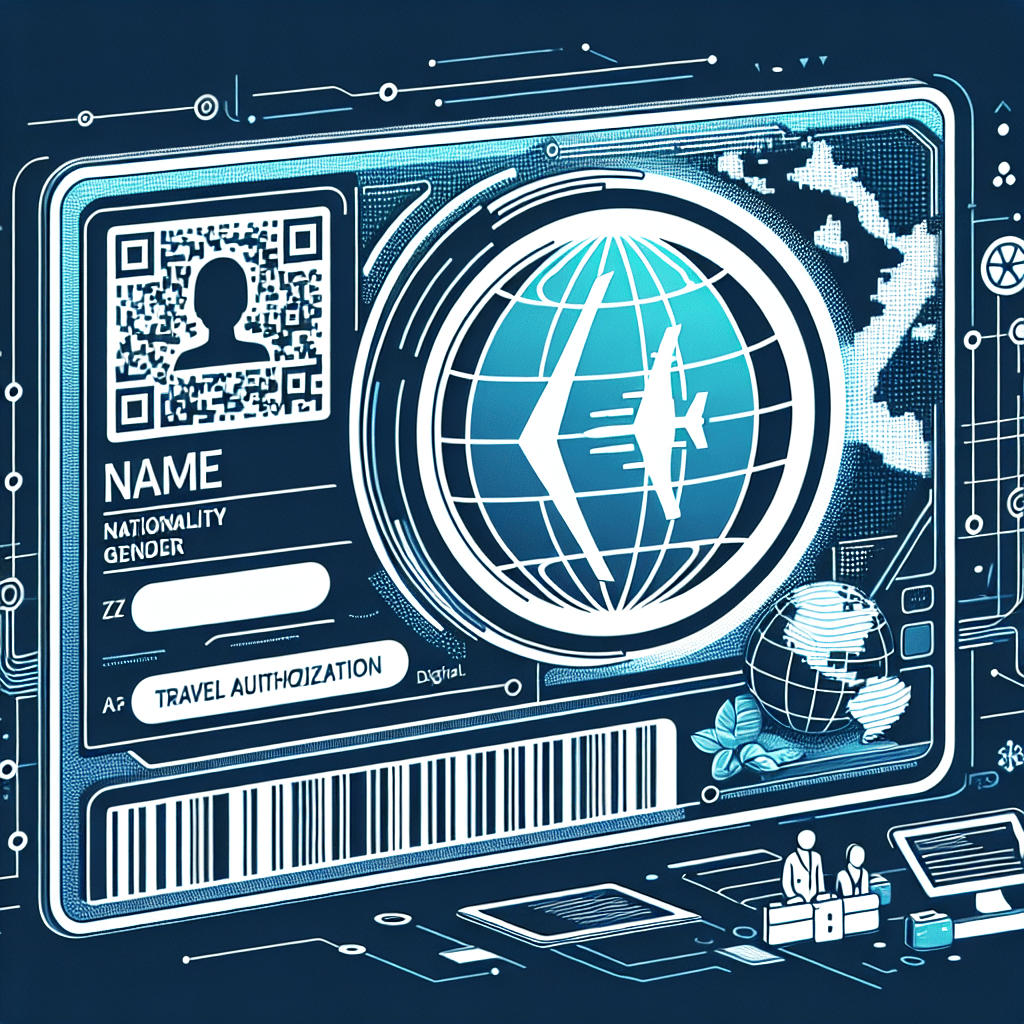
Impact on Global Mobility
Increased Travel Opportunities
The advent of electronic visas has significantly increased travel opportunities for individuals around the world. One of the primary benefits is the easier access to multiple countries. With a digital travel authorization, travelers can apply for visas to various destinations through a streamlined online process. This ease of access encourages more people to explore new countries and cultures, broadening their horizons and fostering a sense of global interconnectedness.
The convenience of an online visa application also promotes spontaneous travel. In the past, planning an international trip often required extensive preparation and long waiting periods for visa approvals. However, with e-Visa processing, travelers can receive their electronic travel permits quickly, allowing for last-minute travel plans. This flexibility is particularly appealing to younger generations and frequent travelers who value the ability to make impromptu travel decisions.
Moreover, the availability of virtual visa services means that travelers can apply for and receive their visas from anywhere in the world, as long as they have internet access. This eliminates the need to visit embassies or consulates in person, making the process more accessible to a wider audience. The result is a significant increase in the number of people who can travel internationally, contributing to the growth of global mobility.
Economic Benefits
The economic impact of electronic visas is substantial, particularly for the tourism and business sectors. By simplifying the visa application process, e-Visas attract more tourists to various destinations, boosting local economies. Tourism is a major source of revenue for many countries, and the ease of obtaining a digital entry permit encourages more people to visit, spend money, and support local businesses.
In addition to tourism, electronic visas also facilitate increased business travel and international trade. Business professionals can obtain their electronic travel documents quickly and efficiently, allowing them to attend meetings, conferences, and other events without the hassle of traditional visa processes. This ease of travel fosters stronger business relationships and opens up new opportunities for international collaboration and trade.
The economic benefits extend beyond just the travel and tourism industries. The implementation of a web-based visa system can create jobs and stimulate technological advancements. Governments and private companies involved in the development and maintenance of e-Visa platforms contribute to economic growth by investing in technology and infrastructure. This, in turn, can lead to further innovations and improvements in the digital visa application process.
Cultural Exchange and Understanding
Electronic visas play a crucial role in promoting cultural exchange and understanding. By making international travel more accessible, e-Visas facilitate cross-cultural interactions and experiences. Travelers have the opportunity to immerse themselves in different cultures, learn new languages, and gain a deeper appreciation for the diversity of the world.
The ease of obtaining an electronic immigration visa encourages people to participate in cultural exchange programs, study abroad opportunities, and international volunteer projects. These experiences foster mutual understanding and respect among individuals from different backgrounds, contributing to a more harmonious and interconnected global community.
Furthermore, the promotion of global citizenship is a significant outcome of increased travel opportunities. As people travel more frequently and interact with diverse cultures, they develop a sense of responsibility and empathy towards global issues. This awareness can lead to positive social change, as individuals become more engaged in addressing challenges such as climate change, poverty, and human rights.
In summary, the impact of electronic visas on global mobility is profound. By increasing travel opportunities, boosting economic growth, and promoting cultural exchange, e-Visas are transforming the way people experience the world. The continued adoption and improvement of digital visa systems will undoubtedly enhance global mobility and contribute to a more connected and understanding world.
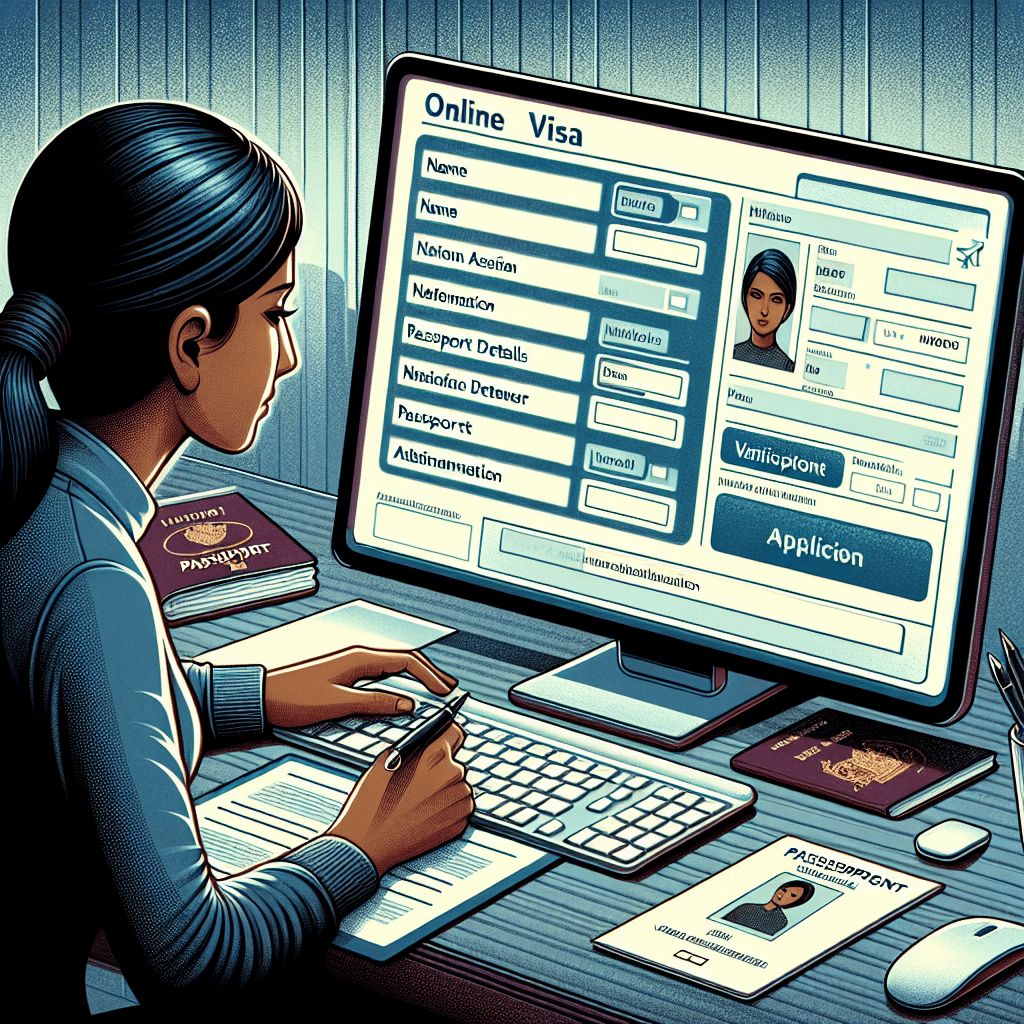
Challenges and Considerations
Technological Barriers
While electronic visas offer numerous advantages, they also present certain technological barriers that need to be addressed. One of the primary challenges is access to reliable internet. In many parts of the world, especially in developing countries, internet connectivity can be inconsistent or unavailable. This lack of access can hinder the ability of individuals to complete an online visa application, thereby limiting their opportunities for international travel.
Another significant barrier is the requirement for digital literacy. Not all individuals are comfortable or familiar with using online platforms and digital tools. The process of e-Visa processing involves navigating websites, filling out online immigration forms, and uploading necessary documents. For those who are not tech-savvy, this can be a daunting task. Governments and service providers must consider ways to make the digital travel authorization process more user-friendly and provide support for those who may struggle with digital literacy.
To overcome these technological barriers, it is essential to invest in infrastructure that ensures widespread and reliable internet access. Additionally, educational initiatives aimed at improving digital literacy can empower more people to take advantage of electronic visa systems. By addressing these challenges, the benefits of e-Visas can be extended to a broader population, enhancing global mobility for all.
Privacy and Data Security Concerns
Privacy and data security are critical considerations in the implementation of electronic visas. The process of obtaining a digital entry permit involves the collection and storage of sensitive personal information, including passport details, biometric data, and travel history. Ensuring the protection of this information is paramount to maintaining the trust of applicants and safeguarding their privacy.
One of the primary concerns is the potential for data breaches and unauthorized access to personal information. Online visa services must implement robust security measures, such as encryption and secure servers, to protect the data of applicants. Additionally, compliance with international data protection standards is essential to ensure that personal information is handled responsibly and securely.
Another concern is the issue of government surveillance. The digital nature of e-Visa platforms allows for the collection and analysis of vast amounts of data, which can be used for monitoring and tracking individuals. While this can enhance security and immigration control, it also raises questions about the extent of government surveillance and the potential for misuse of personal information. Striking a balance between security and privacy is crucial to addressing these concerns and ensuring that electronic travel documents are both safe and respectful of individual rights.
Policy and Regulatory Differences
The implementation of electronic visas is not uniform across all countries, leading to variations in e-Visa policies and regulations. These differences can create confusion and complications for travelers who need to navigate different requirements and procedures depending on their destination. For example, some countries may have specific eligibility criteria, document requirements, or processing times that differ from others.
To address these challenges, there is a need for greater international cooperation and standardization of e-Visa policies. Harmonizing the requirements and procedures for digital visa applications can simplify the process for travelers and ensure a more consistent and predictable experience. This can be achieved through bilateral agreements, regional initiatives, and global frameworks that promote the adoption of best practices and common standards.
Furthermore, governments must consider the impact of policy changes on travelers and ensure that any updates to e-Visa systems are communicated clearly and effectively. Providing comprehensive information and support to applicants can help mitigate the challenges posed by policy and regulatory differences, making the process of obtaining an electronic immigration visa more straightforward and accessible.
In conclusion, while electronic visas offer numerous benefits, it is essential to address the challenges and considerations associated with their implementation. By overcoming technological barriers, ensuring privacy and data security, and harmonizing policies and regulations, the full potential of e-Visas can be realized. This will enhance global mobility and create a more seamless and secure travel experience for individuals worldwide.
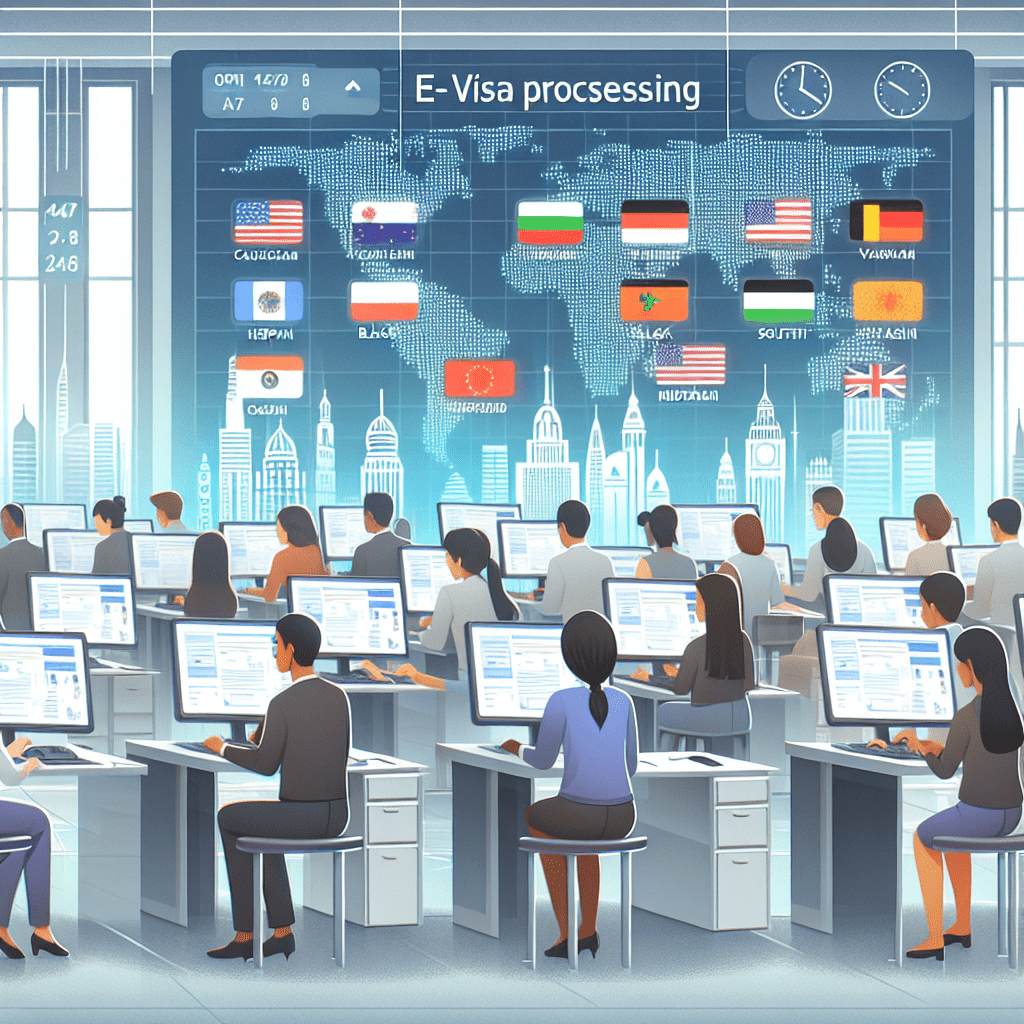
Conclusion
The transformative impact of electronic visas on global mobility and travel is undeniable. By offering a more convenient, efficient, and secure method of obtaining travel authorization, e-Visas have revolutionized the way people plan and embark on international journeys. The shift from traditional paper-based visa systems to digital travel authorization has made it easier for individuals to explore new destinations, engage in business activities, and participate in cultural exchanges. This transformation has not only enhanced the travel experience for millions of people but has also contributed to the growth of global tourism and international trade.
Electronic visas have democratized access to international travel, breaking down barriers that previously hindered many from exploring the world. The ability to apply for a visa online, receive digital visa approval, and obtain an electronic travel document without the need for physical visits to embassies has made the process more accessible and less time-consuming. This increased accessibility has encouraged more spontaneous travel and opened up new opportunities for cultural exchange and understanding. As a result, e-Visas have played a crucial role in fostering a more interconnected and globally aware society.
Looking ahead, the future prospects and potential developments in electronic visa systems are promising. As technology continues to advance, we can expect further improvements in the efficiency and security of e-Visa platforms. Innovations such as artificial intelligence and blockchain technology have the potential to enhance the accuracy and speed of e-Visa processing, making the application process even more seamless for travelers. Additionally, the integration of biometric data and advanced digital verification methods will further strengthen the security of electronic travel permits, reducing the risk of fraud and unauthorized access.
International cooperation and standardization will also play a key role in the future of electronic visas. By harmonizing e-Visa policies and procedures across countries, the global community can create a more consistent and user-friendly experience for travelers. This will require collaboration between governments, international organizations, and private sector stakeholders to develop common standards and best practices for digital visa applications. Such efforts will not only simplify the process for travelers but also enhance the overall efficiency and effectiveness of global visa systems.
In conclusion, the impact of electronic visas on global mobility and travel has been transformative, offering numerous benefits while also presenting certain challenges. By addressing these challenges and embracing future developments, the potential of e-Visas can be fully realized, paving the way for a more connected, secure, and accessible world. The continued evolution of electronic visa systems will undoubtedly shape the future of international travel, making it easier and more enjoyable for people to explore the world and engage with diverse cultures.